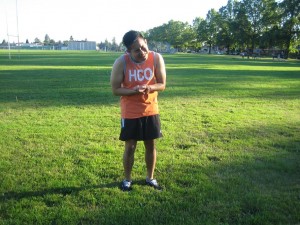Bedbugs and small insects with six legs that spend the day hiding and come out during night time to feed. The bugs inject an anesthetic in order to keep their victims from feeling anything and an anticoagulant in order to keep the blood flowing. Bedbugs cause small-sized hives that covers the area where they have bitten.
Signs of bedbugs
- A sweet and musty odor inside bedrooms or in sleeping areas. It is a sign of heavy bed bug infestation in the area. Bedbugs produce chemicals that help them communicate and they can easily be detected because of the odor.
- Presence of specks of blood in the sheets or blankets especially near the seams. Check also on all upholstered furniture, sofa and headboards for specks of blood.
- If there is presence of small-blackish specks on the mattress, beddings, headboard as well as cushions and under the sofa, it could be bedbug waste matter.
- The eggs of the bedbug are white oval shaped that can be found in the cracks and crevices and it is just the size of an apple seed.
Treatment
- Wash the bitten area using soap and water in order to help prevent infections on the skin and minimize the itchiness.
- Avoid scratching the area in order to help prevent irritation and damage the skin that increases the risk for infections.
Wash the bitten area using soap and water in order to help prevent infections on the skin and minimize the itchiness. - Take antihistamines such as Benadryl that is used to treat allergies. These medications help lessen the inflammation and itching caused by the bedbugs.
- If there are hives all over the body and there is difficulty in breathing, seek medical help immediately.
- Freeze all sleeping clothes, bed sheets and other bedding items for at least 24 hours and spray pesticide around the area of the bed in order to control the bedbug infestation.
- Make a paste using baking soda and a few drops of water. Mix well until it becomes a thick paste and apply a thick coat of the paste on the bedbug bites. Allow it to dry at least for an hour or more and then wash it off using warm water.
- Immerse a cotton ball in lemon juice or witch hazel which is natural astringents. Dab this cotton ball on the bite site to help the area dry and minimize the itching.
- Apply the gel from an aloe plant on the site caused by bedbugs. Aloe contains antibiotic and antifungal properties which helps prevent secondary infections caused by scratching.
- Apply the prescribed over-the-counter steroidal anti-itch creams that contains hydrocortisone or cortisone to minimize the itchiness and inflammation
- Apply calamine lotion on the affected area to help lessen the itchiness and also helps in drying out the rash and promote fast healing of the bite site.
- Take the prescribed over-the-counter anti-inflammatory medications such as ibuprofen and naproxen in order to minimize the discomfort and pain.

